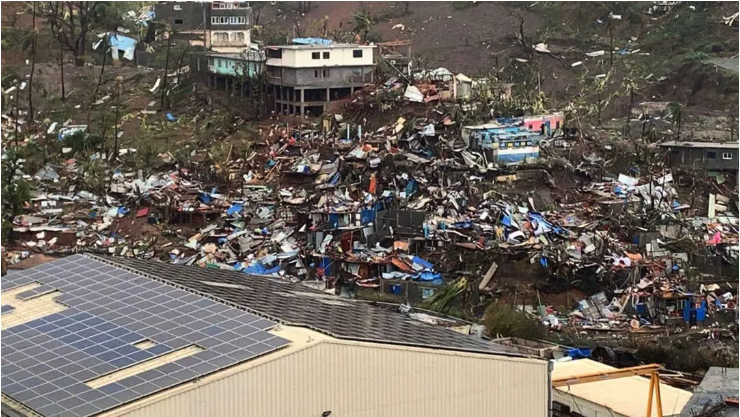China: Landslide Buries Dozens in Yunnan Province, State Media Reports
On Monday, a landslide in Zhenxiong County, southwestern Yunnan province, killed at least eight people and left 39 others unaccounted for.
Facts
- On Monday, a landslide in Zhenxiong County, southwestern Yunnan province, killed at least eight people and left 39 others unaccounted for.1
- The landslide hit the mountain community of Liangshui just before daybreak. It caused eighteen houses to collapse, and prompted the evacuation of over 500 people. Drone images from the scene showed a wide-sloping mound of black sludge had spilled onto snow-covered village rooftops.2
- Nearly 1K rescue workers with digging equipment have been deployed to the scene, though a cold spell of freezing and below-freezing temperatures is expected to complicate rescue efforts.3
- Chinese President Xi Jinping has called on local officials to increase their rescue efforts and has pressed officials across the country to be vigilant to avoid any major disasters as the Chinese New Year approaches.2
- The cause of the landslide was not immediately clarified by the authorities and is currently under investigation. Local media reported claims that a coal mine was operating near the site of the landslide and villagers had spotted cracks in the mountainside in the weeks before the deadly disaster.3
- In 2023, at least 70 people were killed in landslides in China, which are often attributed to extreme weather, heavy rainfall, and faulty construction. According to the National Commission for Disaster Reduction and the Ministry of Emergency Management, natural disasters caused economic losses of $48B last year.4
Sources: 1The Guardian, 2CNN, 3CBS and 4Associated Press.
Narratives
- Narrative A, as provided by VOA. The Yunnan region is located near the Himalayan plateau, a mountainous region prone to earthquakes and landslides. This landslide followed one of the country's deadliest earthquakes in years, which occurred less than a month ago, killing 149 people and destroying thousands of homes. Natural disasters unfortunately do occur, and the Chinese government devotes all available resources to preventing them and dispatching assistance when one occurs.
- Narrative B, as provided by NASA. Research suggests that climate change may cause more frequent and powerful rainstorms in the High Mountain Asia region (China, Tibet, and Nepal), raising the risk of future landslides. As the climate warms, heavy precipitation is predicted to become more prevalent, perhaps boosting landslide activity by 30-70% in some areas. While the region is currently sparsely populated, future population growth will come hand in hand with a warmer climate, continuing to harm the region's glaciers. The Chinese government cannot simply react to these disasters, it must do more to reduce emissions so as to protect the region's future.







